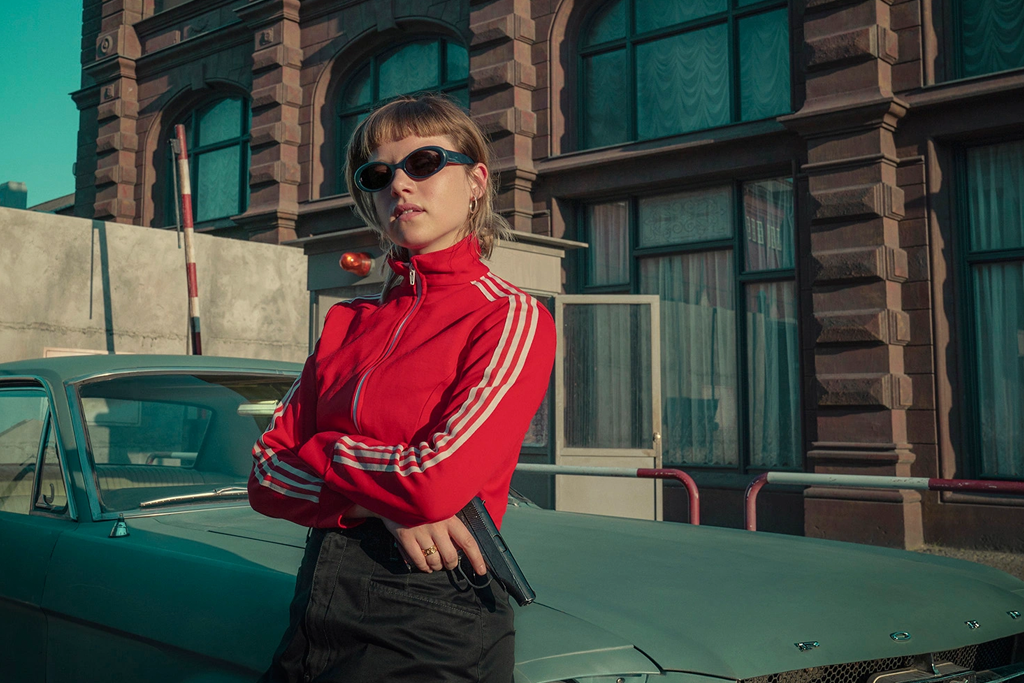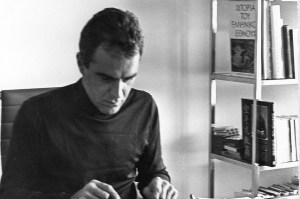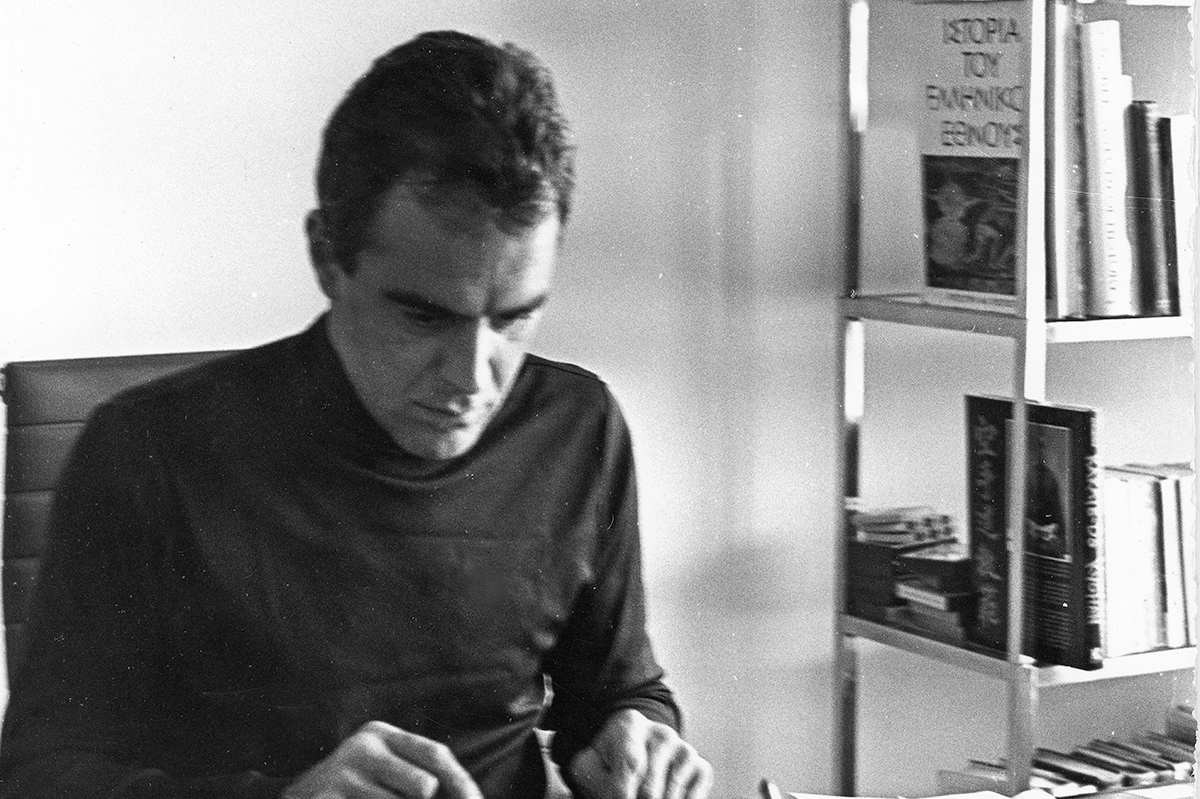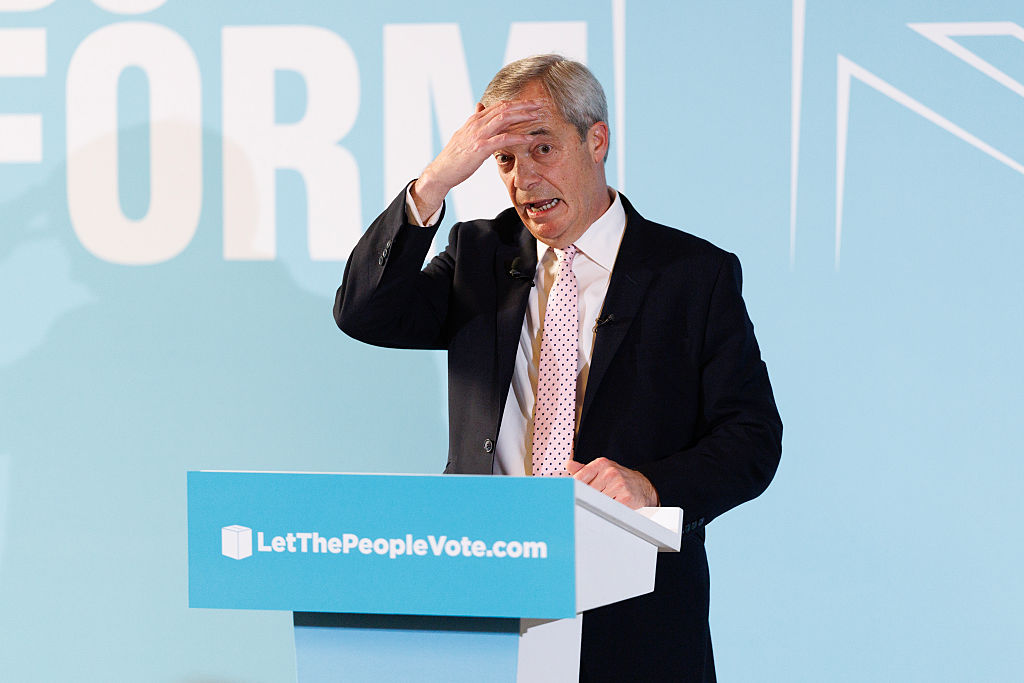I was almost tempted not to watch Kleo because it sounded like so many things I’d seen before: beautiful ex-Stasi assassin, mysteriously imprisoned for nameless crimes, suddenly out of a job after the fall of the Berlin Wall, takes brutal revenge on all who betrayed her.
It’s reminiscent not just of everything from La Femme Nikita, Kick-Ass and Kill Bill to the ghastly, grisly Killing Eve, but of any number of hitmen-out-of-retirement dramas (most recently The Old Man), plus every revenge yarn from the Count of Monte Cristo onwards, all seasoned with a delicate hint of Deutschland 83.
But the thing about TV, you realize, is that originality is overrated, not to mention all but impossible. What matters is the detail, the tone, the handling. If you get those things right, and Kleo has, then your audience will forgive you any amount of cliché in the storyline.
Kleo Straub is very charmingly played by Jella Haase in such a way that no matter how many people she brutally kills — by gunshot, fugu fish poison, an explosive jacket, cake, etc. — you still think she’s a lovely, sweet girl you’d happily have as your daughter-in-law. This is certainly preferable to the lesbian, torture-porn aesthetic of Killing Eve, which rubs your face in the Villanelle character’s violence. Yes, there is gore, but a) the people she executes frankly have it coming to them and b) it’s all so tongue-in-cheek that it never feels too real.
This is what I like about foreign drama series, by which I mean ones made outside the Anglosphere. For example, what made the Turkish sci-fi series Hot Skull for me wasn’t so much the so-so plotline as the early Doctor Who aesthetic and all the things it taught you about the Turks, like how much they value smoking, traditional food and elderly mothers. What makes far eastern dramas like South Korea’s Squid Game so enticing is that the culture is so different you never know what the televisual rules about likely plot events are. And what I like about German series such as Kleo is that they’re so damned German.
How you’d define their peculiar tone I’m not quite sure. I expect there must be a very long German word for it. It’s at once realistic and fantastical with a perverse sense of humor, which I’m sure works for its local audience — the scene where Kleo goes to the Majorcan retreat of her next targets and pretends to be a blousy, rich West German, say — but is mystifying if you’re English.
The same applies to some of the characters. Kleo’s nemesis — one of them anyway — is a bumbling, obsessive West German detective called Sven (Dimitrij Schaad). I can’t work out whether or not he’s meant to be sympathetic but he just comes across to me as a total idiot, whom you’d have preferred Kleo quickly to dispatch so as to put us all out of our misery. But at least it’s different, beguilingly different, and I’m hooked.
As I am also on the ever wonderful Clarkson’s Farm. Yes, I know it’s probably all storyboarded and fake, as “reality” TV necessarily is. I mean, you can hardly just roll the cameras in the hope that something amusing happens that you can shape into a story later. And I love the amusing gimmicks, like the character Gerald, who pops up now and again to mumble in a rural Oxfordshire accent so broad that even young Kaleb (who has never been on a train, and thinks anyone born further away than Chipping Norton is foreign) can’t understand him, and even though in real life he is perfectly intelligible.
The joy of Clarkson is that he’s such an amiable TV natural, you’d still be glued to the screen if his next venture was about training to be an accountant. And perhaps he’ll have to, the way his gentleman farmer career is going. This season, in order to make a profit (currently a 0.75 percent return per annum on his investment), he’s trying to set up a restaurant whose USP is that everything on the menu is grown or reared on his land.
But the jobsworths at West Oxfordshire District Council, plus one or two irate locals with a grudge against pushy celebrities, are determined this won’t happen. Maybe they have a case: this is an area of outstanding natural beauty and those lines of traffic must be bloody annoying if you live nearby. Most viewers, though — inevitably, because both the editing and the star’s personality are calculated to elicit such a reaction — will see Clarkson as the hero, and his plight as emblematic of everything that is wrong with Britain.
Clarkson has found his little piece of heaven. He’s obviously happy in what he does and wants to do his bit for the economy, the landscape and the gaiety of the nation. But at every turn he is frustrated by bureaucracy, overregulation, animal rights protection for the exploding population of hedgehog-chomping, cow-killing tubercular badgers, and so on.
Clarkson — c’est nous. I do hope he gets another series.
This article was originally published in The Spectator’s UK magazine. Subscribe to the World edition here.





















